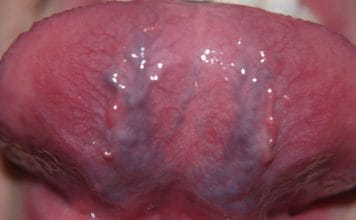According to Beltone, one in six people in this country has some form of hearing loss.9 Much research is available about how to treat or accommodate deaf or hard-of-hearing patients. However, there is a lack of resources pertaining to how the deaf or hard of hearing can enter the dental profession.
Prior to writing this article, I was hoping to find data as to why there are not more deaf or hard-of-hearing dental professionals. I was curious how many of us are out there?
The data I gathered on my own is based on small surveys and is not definitive. So, from my current knowledge, there are less than 1% of us. There are very few deaf or hard-of-hearing dental hygienists, but deaf or hard-of-hearing dentists are even rarer.
Can We Do This?
Many people have said to me, “I’ve never met a dental hygienist who is deaf.” I was not shocked. I knew this.
People thought I was insane for wanting to become a dental hygienist. I was aware of the challenges mask-wearing would bring − the most difficult being the ability to communicate effectively. There’s no black or white in this case. I might understand a male dentist (but not a female doctor) because of his deep voice. I can’t recognize the difference between the D or B when classifying a tooth restoration for a treatment plan.
There’s a difference between “hearing” and “understanding.” Understanding is more complex where hearing is just a recognition of different sounds and tones. Our ears may be able to pick up sounds, but it doesn’t mean we understand what was fully said. A person with hearing loss, depending on the severity, usually faces the challenges of speech comprehension. We fill in the gaps with lip reading.
My hearing loss can affect every aspect of my job. Growing up with hearing loss has given me unique outlooks on life. I knew I would be making a positive impact on the lives of patients with disabilities.
I face challenges in my daily life due to my hearing loss. I knew the challenges, misunderstandings, and discrimination that I face doing basic activities would not only follow me into my profession but could be amplified. It is a challenge because of mask-wearing, inability to lipread, and the noise from equipment used in dental offices.
I don’t let it define me but there’s no denying the invisible burden. We work in fast-paced and high-stress environments that make it hard to ask for clarification and understanding. I knew this entering the field but decided I would face the challenges head-on. I am not embarrassed by my disability but accept it.
This helps me be more forward about what I need to do. Although my teachers, employers, and coworkers have been understanding, I have run into situations where other people were not willing to make the effort and I look at that as their loss.
My best advice to my community of deaf and hard-of-hearing dental professionals is to not focus on what makes the job tough but how to adapt and teach those around you what you need in order to work in this profession. Once you show your capabilities, the disability fades to the background. Much effort is required behind getting into a program, getting the interview, getting the job, etc. During an era with increasing recognition of diversity in dentistry, take pride in your story and use it as a strength in pursuing your goals and forming bonds with your patients.
With these barriers, employers can certainly have a hard time hiring a person with disabilities simply because they do not know how to provide accessibility. But it is up to us to show them we can do it.
In our line of work, the patient is always the priority. We accommodate and modify communication, education, and treatment styles based on the patient. If the provider is experiencing their own struggles, then how will they provide the patient with the best treatment possible? To provide the patient with the most complete and comfortable care, we need to be comfortable in our environment as well. That is why clear communication and understanding with your professional team is paramount.
As an employee, to become comfortable in our work environment, accommodations need to be made by the employer. The Americans With Disabilities Act requires that reasonable accommodations be made by employers to allow people with disabilities to work.7 If you can perform the requirements of being a hygienist, then there is no reason why you should not get a chance to perform your job regardless of your disability or the accommodations that need to be made.
Where Do I Start?
If accepted after applying to any accredited dental or dental hygiene program, notify the disability service center at your school. Another tip is to get together with the instructors early on to develop a clear understanding of how the disability is handled. Plenty of accommodations are available such as clear masks, automated blood pressure cuffs, or even special stethoscopes for hearing aid/cochlear implants.
Assistive technology is amazing these days. There are, for example, communication access real-time translation (CART) services.
Hearing loss can vary from mild to severe. People with hearing loss often use oral speech, American Sign Language, or both. Both methods can be hard while performing dental treatments in school and the workforce. The instructor may be teaching how to use a probe while you are the only person who cannot see her lips. You may have to chart for your fellow student, but not only is mask-wearing is a challenge, but there are also tons of background noises in the clinic. The dentist may be doing an exam, and you have completely missed out on the treatment plan discussions due to, again, mask-wearing.
Your co-workers may not know ASL which can cause communication conflicts. You may need more than one accommodation.
The Real Challenge
Having a disability and trying to utilize accommodations can place pressure on us. Dental and dental hygiene programs are extremely competitive. “Many students with disabilities are ashamed that they need accommodations; they fear that their accommodations are viewed as an unfair advantage, or “gaming the system.” They may feel embarrassed or devalued by some of their peers, staff, and faculty. Students with disabilities may also personalize any stigma or criticism and feel their progress or success is somehow devalued when compared to that of their peers.”2 I often felt my accommodations were viewed as unfair advantages growing up and felt the same shame as an adult going to hygiene school.
Why Should They Hire Me?
According to Derrington, when you hire someone with hearing loss, your office becomes that much more diverse. The team will learn to become compassionate and composed, which, in turn, can create better team members. Workers in the deaf and hard-of-hearing communities are very adaptable. They constantly face barriers every single day. They are also known to constantly put forth career advancements for better opportunities to prove themselves.4
I take pride in taking more than the biannual CE requirements or attending workshops to be a better dental hygienist. As I recognize that I have disadvantages, I also learn that I must work twice as hard as others. We can help bring in a whole new perspective to the office.
Note: The Rochester Institute of Technology and National Technical Institute for the Deaf offer workshops on how to better work with your deaf and hard-of-hearing employees.11 The Job Accommodation Network can also give employers more information on affordable accommodations for DHH employees.6
Be Your Own Advocate
To be treated with respect, you must treat others with respect. To give it, you must have it first and foremost. Otherwise, you do not have a gift to share. Be your own advocate. Show up. Don’t be embarrassed by your disability. Be proactive in finding a solution to challenges that hearing people may not be aware of. In taking these positive steps, we can open the door and show that the deaf or hard of hearing have a place in this industry. This will create a more welcoming environment for the future deaf or hard of hearing dental professionals.
We can represent patients of disability. We can advocate and set the example that the only limitations are the ones you place on yourself. We can be who we are and what we are destined to be. It’s important to recognize that every individual has his or her own unique way to succeed.
Note: The Association of Medical Professionals with Hearing Losses (AMPHL) can offer training to admissions committees that can help with the understanding of the deaf and hard-of-hearing applicants.1 The University of Georgia has some great tips on how to teach your deaf or hard-of-hearing students.8 The Coalition for Disability Access in Health Science Education has guidelines for faculty who have students with disabilities.5
Originally published on and adapted from TeethTalkGirl.com.
Now Listen to the Today’s RDH Dental Hygiene Podcast Below:
References
- Association of Medical Professionals with Hearing Losses (AMPHL) website. (n.d.). Retrieved from https://www.amphl.org/
- Coalition for Disability Access. (March 16, 2019). Breaking the Glass Ceiling: Students with Disabilities in Medical School. Student Doctor Network. Retrieved from https://www.studentdoctor.net/2016/05/05/breaking-glass-ceiling-students-disabilities-medical-school/.
- Argenyi, M. (2016, October 01). Technical Standards and Deaf and Hard of Hearing Medical School Applicants and Students: Interrogating Sensory Capacity and Practice Capacity. Retrieved from https://journalofethics.ama-assn.org/article/technical-standards-and-deaf-and-hard-hearing-medical-school-applicants-and-students-interrogating/2016-10.
- Derrington, P.B. (2019, May 16). Top benefits of hiring deaf and hard of hearing people. Retrieved from https://www.hearinglikeme.com/top-benefits-of-hiring-deaf-and-hard-of-hearing-people/.
- Faculty Support. Coalition for Disability Access in Health Science Education. Retrieved from https://www.hsmcoalition.org/faculty-support/.
- Information by Role. Job Accommodation Network. Retrieved from https://askjan.org/info-by-role.cfm.
- Information and Technical Assistance on the Americans with Disabilities Act. United States Department of Justice, Civil Rights Division. Retrieved from https://www.ada.gov/.
- Tips for Teaching Students Who are Deaf or Hard of Hearing. Disability Resource Center: University of Georgia. July 2018. Retrieved from https://drc.uga.edu/site/content_page/tips-for-teaching-students-who-are-deaf-or-hard-of-hearing
- Understanding Mild, Severe, and Profound Hearing Loss. Beltone. Retrieved from https://www.beltone.com/en-us/hearing-loss/understanding-hearing-loss
- Working Together: Deaf & Hearing People. National Technical Institute for the Deaf. Retrieved from http://workingtogether.deaftec.org/














